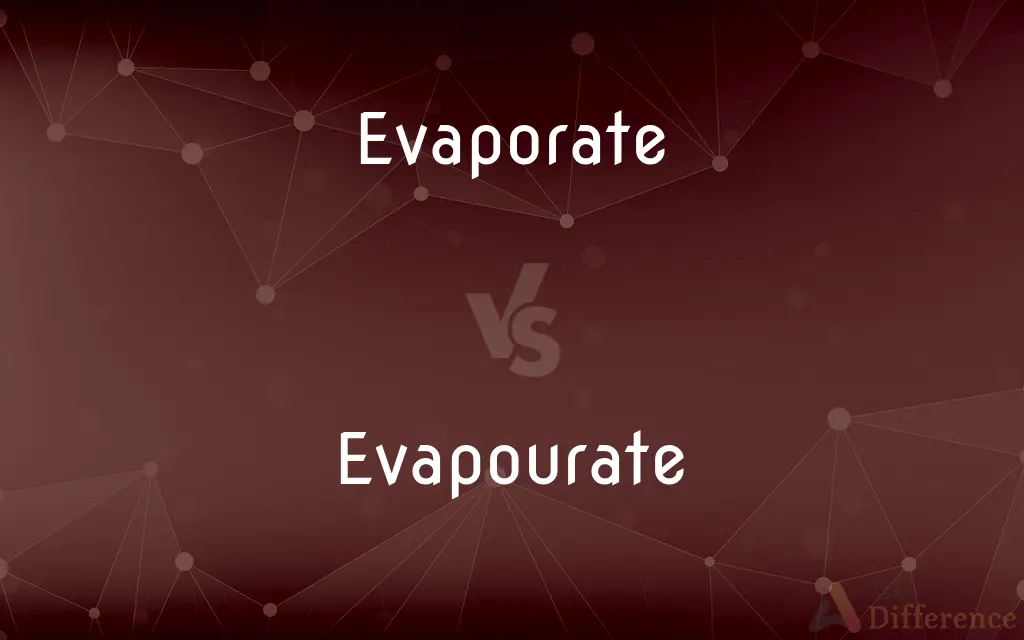Evaporate vs. Evapourate — Which is Correct Spelling?

Table of Contents
Which is correct: Evaporate or Evapourate
How to spell Evaporate?

Evaporate
Correct Spelling

Evapourate
Incorrect Spelling
ADVERTISEMENT
Evaporate Definitions
To convert or change into a vapor.
To draw off in the form of vapor.
To draw moisture from, as by heating, leaving only the dry solid portion.
To deposit (a metal) on a substrate by vacuum sublimation.
To change into vapor.
ADVERTISEMENT
To pass off in or as vapor.
To produce vapor.
To disappear; vanish
Our fears at last evaporated.
(ambitransitive) to transition from a liquid state into a gaseous state
(transitive) to expel moisture from (usually by means of artificial heat), leaving the solid portion
To evaporate apples
To give vent to; to dissipate
To disappear; to escape or pass off without effect
To pass off in vapor, as a fluid; to escape and be dissipated, either in visible vapor, or in particles too minute to be visible.
To escape or pass off without effect; to be dissipated; to be wasted, as, the spirit of a writer often evaporates in the process of translation.
To give moderate liberty for griefs and discontents to evaporate . . . is a safe way.
To convert from a liquid or solid state into vapor (usually) by the agency of heat; to dissipate in vapor or fumes.
To expel moisture from (usually by means of artificial heat), leaving the solid portion; to subject to evaporation; as, to evaporate apples.
To give vent to; to dissipate.
My lord of Essex evaporated his thoughts in a sonnet.
Dispersed in vapors.
Lose or cause to lose liquid by vaporization leaving a more concentrated residue;
Evaporate milk
Cause to change into a vapor;
The chemist evaporated the water
Change into a vapor;
The water evaporated in front of our eyes
Share Your Discovery

Previous Comparison
Waterish vs. Watery
Next Comparison
Uncoordination vs. Incoordination













































